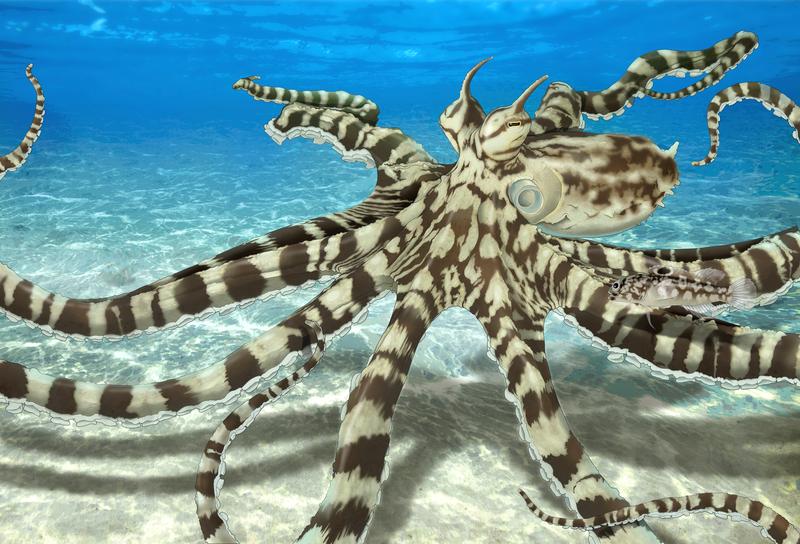
We argue that this may have selected for alternative forms of defence, driving an evolutionary trajectory favouring crypsis and complex behaviours, and the promotion of sensory and cognitive adaptations. In particular, cephalopods are poorly equipped to defend themselves physically and escape predation by fish, due to a lack of comparable weaponry or musculature. In doing so, we consider the unique physiology of cephalopods and discuss how this may have constrained or aided the development of their anti-predator repertoire.
OCTOPUS NATURAL PREDATORS SKIN
Here, we review cephalopod anti-predator evolution, considering four key aspects: (i) shell reduction and loss (ii) the skin patterning system (iii) the ecological context accompanying the evolution of advanced cognit.ive abilities (iv) why the evolutionary trajectory taken by cephalopods is so unique among invertebrates. This is despite their potential relevance, in turn, to elucidate evolution of the remarkable cognitive abilities of cephalopods. While cephalopod anti-predator repertoires are relatively well described, their evolution, and the selective pressures that shaped them, have received much less attention. Instead, cephalopods have evolved highly developed senses to identify potential threats, cryptic skin patterns to avoid detection, startle responses to deter attack, and elaborate means of escape. While ancestral cephalopods were protected by a hard outer shell, extant cephalopods have greatly reduced their reliance on physical defences. Cephalopoda, a class in the invertebrate phylum Mollusca, are known for their diverse anti-predator strategies, characterised by their behavioural flexibility. However, understanding of anti-predator evolution is biased toward vertebrate taxa.
OCTOPUS NATURAL PREDATORS DRIVER
Predation is a major evolutionary driver of animal adaptation.

5Animal Physiology and Biochemistry, Zoological Institute and Museum, University of Greifswald, Greifswald, Germany.4Department of Zoology, Stockholm University, Stockholm, Sweden.3Department of Biology, Centre for Animal Movement Research (CAnMove), Lund University, Lund, Sweden.




 0 kommentar(er)
0 kommentar(er)
